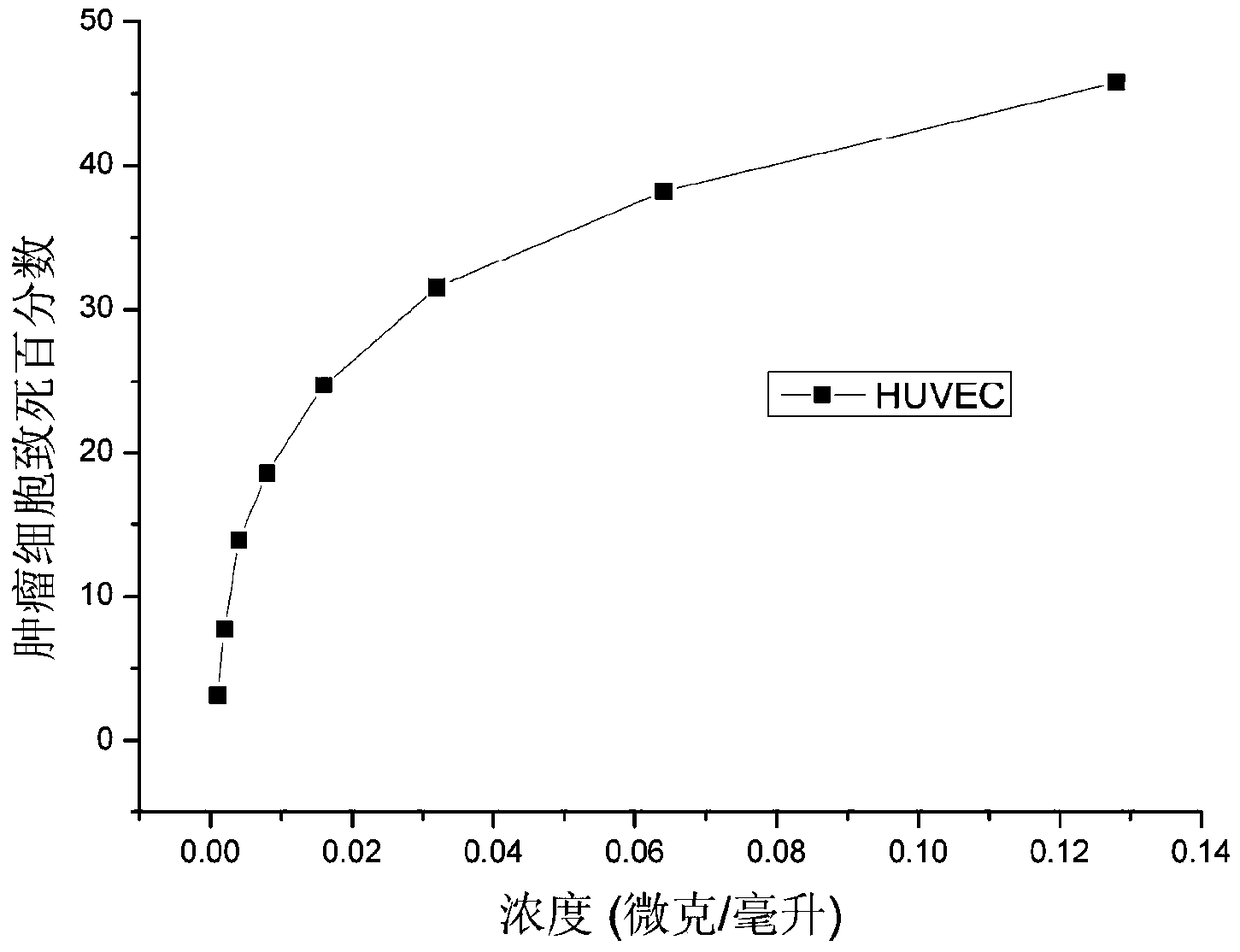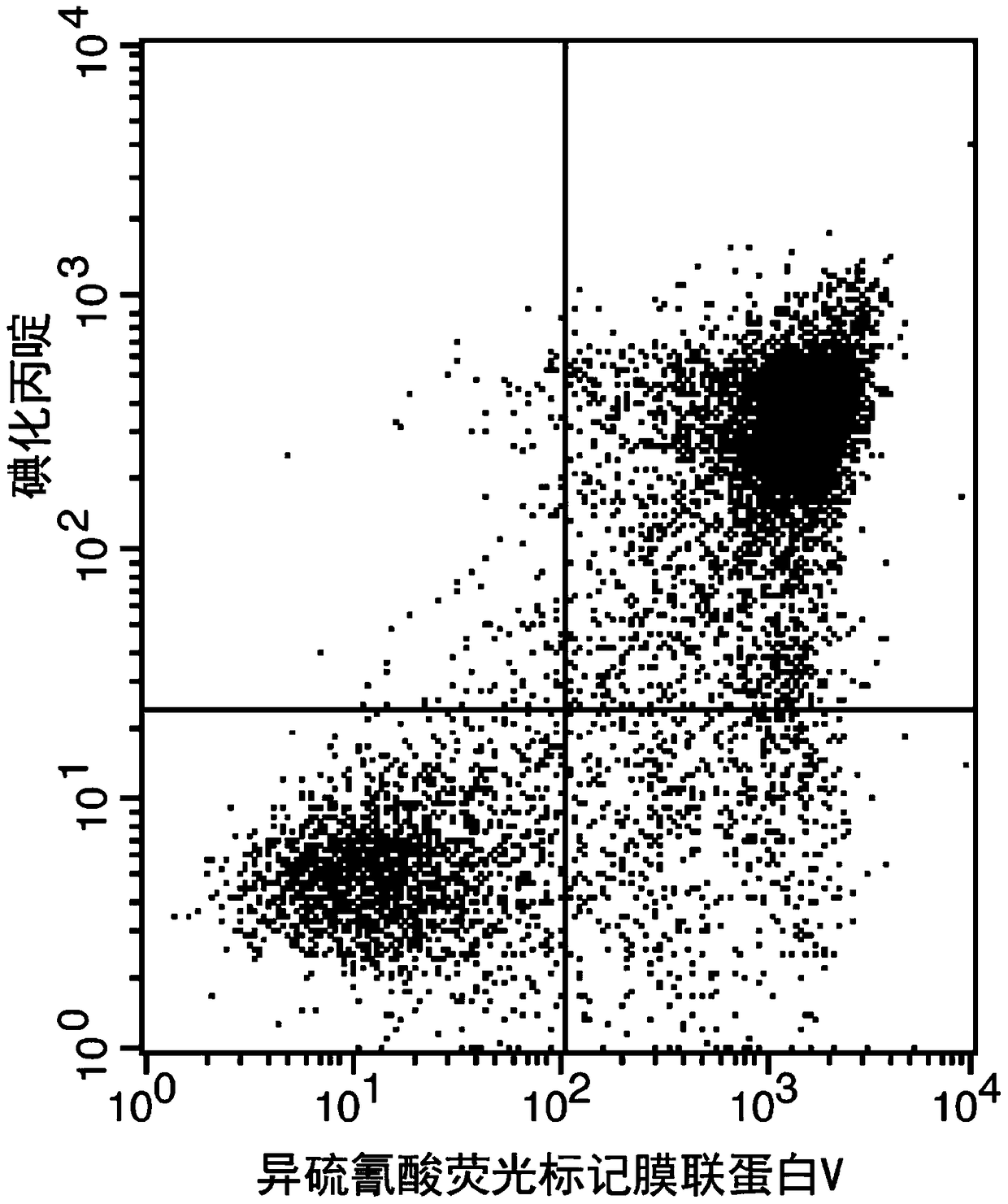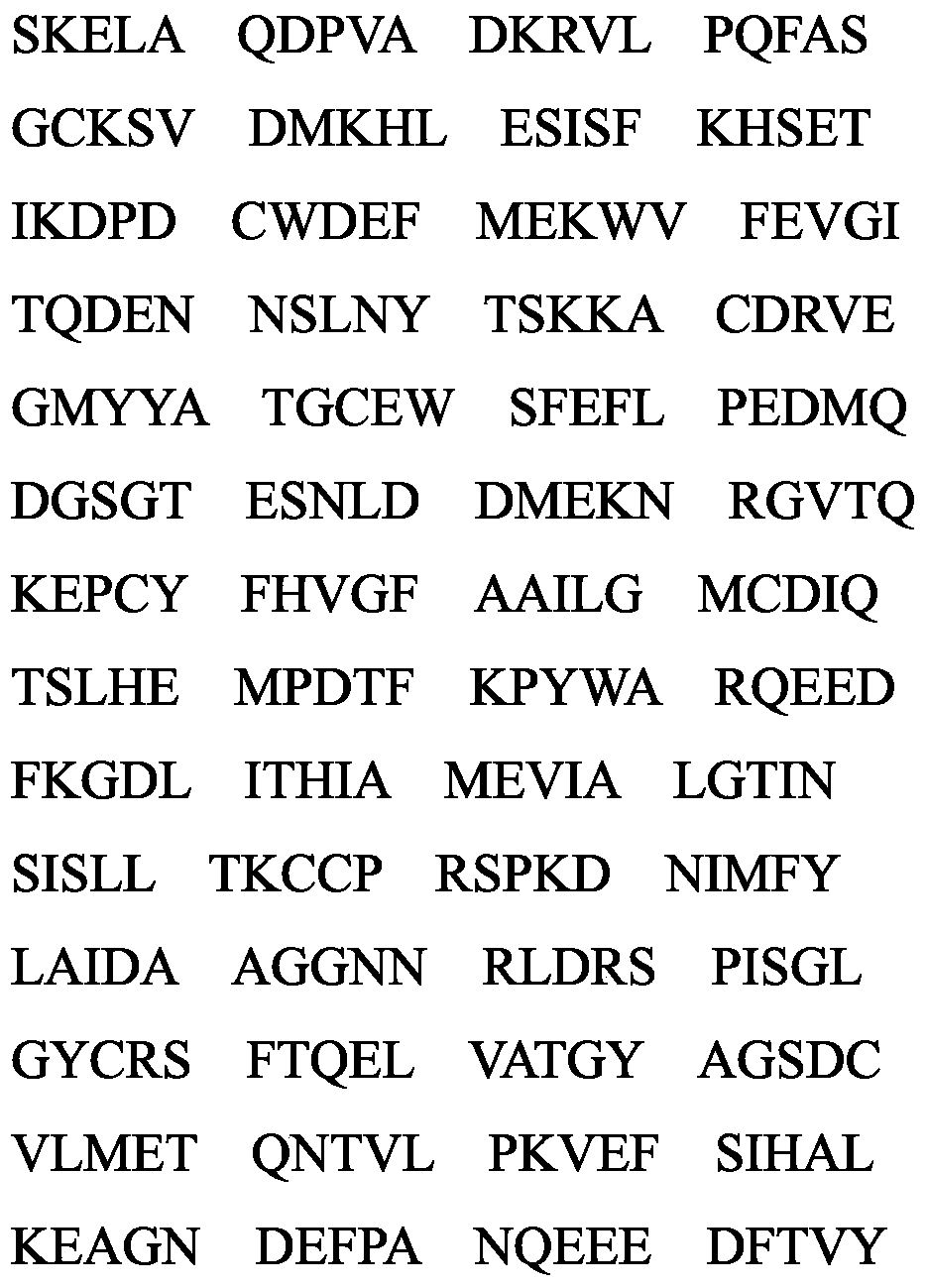A kind of polypeptide extracted from the venom of fire jellyfish cnidaria and its application
A fire jellyfish thorn and venom technology, which is applied in the field of peptides, can solve the problems of difficulty in separation and purification of jellyfish toxins and imitation of toxin separation and purification, and achieve the effects of inhibiting the growth of HUVEC, fewer separation steps and simple operation.
- Summary
- Abstract
- Description
- Claims
- Application Information
AI Technical Summary
Problems solved by technology
Method used
Image
Examples
Embodiment 1
[0042] A polypeptide molecule, the amino acid sequence of which is shown in SEQ ID No.1;
[0043] SEQ ID No. 1:
[0044]
[0045]
Embodiment 2
[0047] The extraction of the polypeptide of the present invention:
[0048] Step 1. Take the tentacles from the live fire jellyfish and mix them with deionized water at 0°C in a volume ratio of 1:1. After stirring and standing still, take the precipitate and repeat it twice. Centrifuge for the first time. The centrifugation conditions are: centrifugal force 1000G, 4°C, 15min, collect the precipitate;
[0049] Step 2. Mix the precipitate obtained in step 1 with the disodium hydrogen phosphate-sodium dihydrogen phosphate buffer solution with a total phosphate concentration of 0.025mol / L and a pH of 5.5 according to the mass volume ratio of 1g: 40mL, and ultrasonically crush it for the second time. Centrifuge, the centrifugation conditions are: centrifugal force 13000G, 4°C, 2h, collect the supernatant to obtain the venom protein;
[0050] Step 3, take the venom protein obtained in step 2, dilute it 3 times with a buffer solution of disodium hydrogen phosphate-sodium dihydrogen ...
Embodiment 3
[0054] The extraction of the polypeptide of the present invention:
[0055] Step 1. Take the tentacles from the live fire jellyfish and mix them with deionized water at 4°C at a volume ratio of 1:1.5. After stirring and standing still, take the precipitate and repeat it for 4 times. Centrifuge for the first time. The centrifugation conditions are: centrifugal force 1000G, 4°C, 15min, collect the precipitate;
[0056] Step 2, mix the precipitate obtained in step 1 with the disodium hydrogen phosphate-sodium dihydrogen phosphate buffer solution with a total phosphate concentration of 0.025mol / L and a pH of 6.5 according to the mass volume ratio of 1g: 60mL, and ultrasonically crush it for the second time Centrifuge, the centrifugation conditions are: centrifugal force 13000G, 4°C, 2h, collect the supernatant to obtain the venom protein;
[0057] Step 3, take the venom protein obtained in step 2, dilute it 5 times with the disodium hydrogen phosphate-sodium dihydrogen phosphate ...
PUM
 Login to View More
Login to View More Abstract
Description
Claims
Application Information
 Login to View More
Login to View More - R&D Engineer
- R&D Manager
- IP Professional
- Industry Leading Data Capabilities
- Powerful AI technology
- Patent DNA Extraction
Browse by: Latest US Patents, China's latest patents, Technical Efficacy Thesaurus, Application Domain, Technology Topic, Popular Technical Reports.
© 2024 PatSnap. All rights reserved.Legal|Privacy policy|Modern Slavery Act Transparency Statement|Sitemap|About US| Contact US: help@patsnap.com










